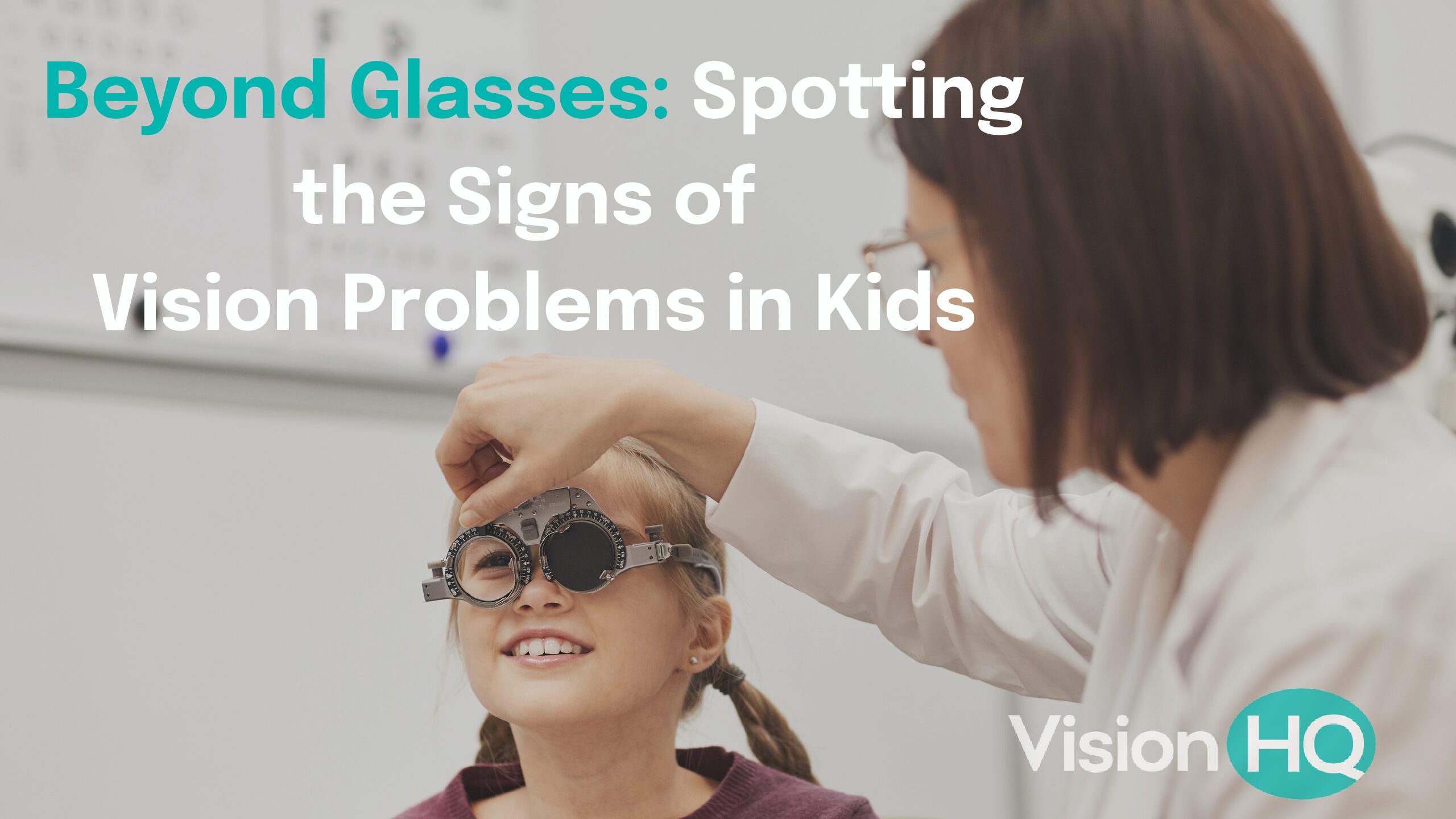Not all vision issues are obvious.
Many parents assume they’d know if their child had trouble seeing, but the truth is, kids often don’t realize their vision is off. Instead of complaining about blurry text or trouble seeing the board, they might struggle to focus, avoid reading altogether, or act out in class. In some cases, what looks like a behavioral or learning issue is actually a hidden vision problem.
And as the school year begins, now’s the perfect time to help families (and teachers) spot the signs early.
Vision Issues Can Masquerade as Something Else
Children don’t always have the language or awareness to explain what they’re experiencing. That’s why vision problems in kids are often misidentified as:
- Difficulty paying attention
- Poor reading comprehension
- Slower learning progress
- Behavioral issues or frustration during homework
- Physical complaints like headaches or tired eyes
If a child is falling behind or acting out in school, a comprehensive eye exam could be the first step to getting them back on track.
What to Watch For
Here are a few common signs that could point to undiagnosed vision problems:
- Squinting, blinking excessively, or tilting the head to see
- Holding books or screens very close
- Covering one eye while reading or watching something
- Frequent eye rubbing or complaining of tired eyes
- Short attention span during reading or detail-oriented tasks
- Trouble with hand-eye coordination in sports or play
Encouraging parents to look out for these subtle cues can lead to earlier detection and better academic performance and confidence for their kids.
A Simple Vision Screening Isn’t Enough
School screenings are helpful, but they don’t tell the full story. They usually check for distance vision only and may miss problems with eye teaming, tracking, or focusing, issues that can seriously affect reading and learning.
That’s why comprehensive exams from an optometrist are so important. They give a full picture of how a child’s eyes are functioning and developing, beyond just how well they can see across the room.
Proactive Care = Confident Students
When vision issues are caught early, they’re often easy to manage with corrective lenses, vision therapy, or simple changes in reading and screen habits. Addressing them early can mean fewer school struggles, more confidence in the classroom, and a happier student overall.
A new school year is the perfect time to schedule that exam, before the homework piles up and problems begin to snowball.
Membership Plans Make Preventive Care Easier
Families sometimes hesitate to book exams if they’ve recently missed open enrollment or don’t have vision coverage. That’s where your membership plan can make all the difference. A clear, affordable membership option gives parents peace of mind and keeps care accessible year-round—no insurance required.
Want to help more families stay proactive this school year?
Let VisionHQ show you how membership plans can make care easier for both you and your patients. Watch a quick demo

View comments
+ Leave a comment